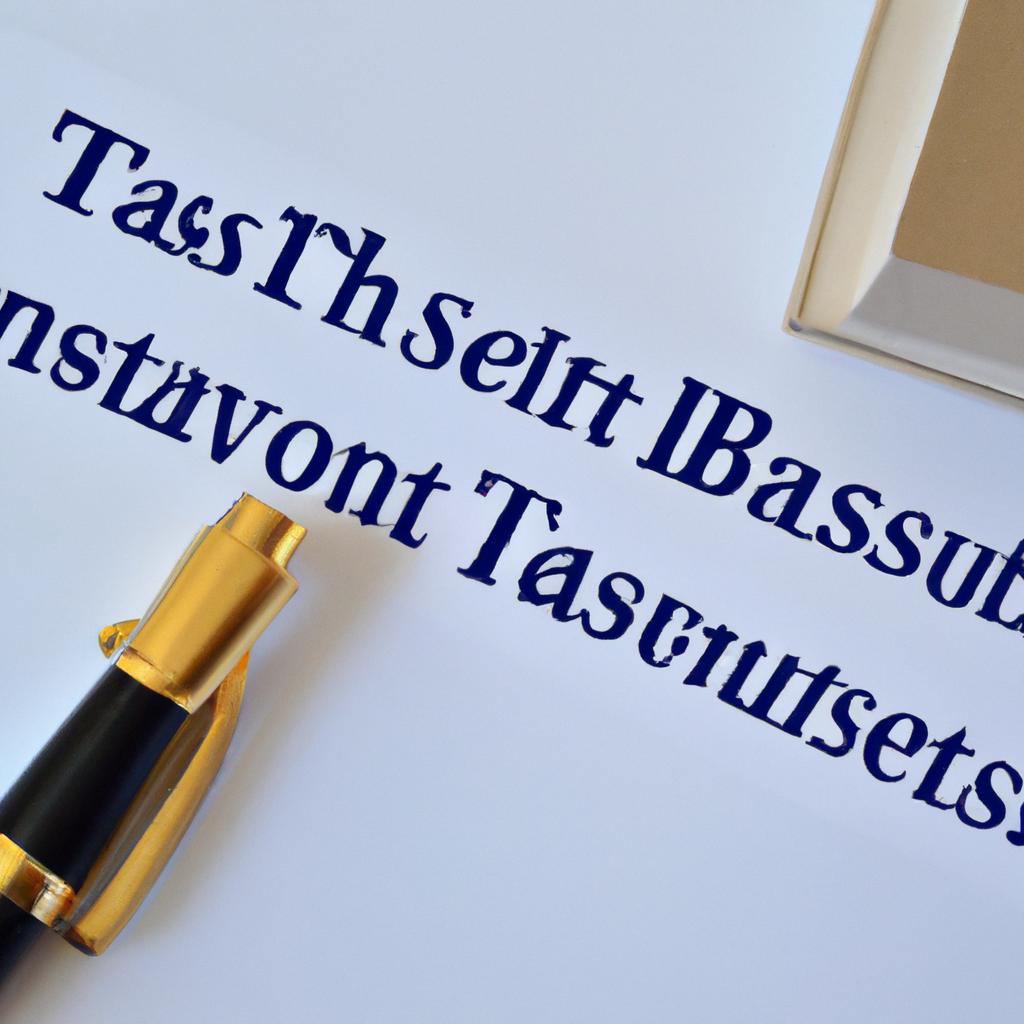Welcome to Morgan Legal Group, your trusted source for comprehensive estate planning solutions in New York City. As experienced attorneys in the intricate realm of probate, elder law, Wills, and trusts, we understand the importance of secure planning for your estate’s future. In this article, we aim to demystify the complexities of estate planning and provide you with the necessary knowledge to make informed decisions for the preservation of your assets. Join us as we delve into the nuances of estate planning and explore the various strategies available to safeguard your legacy.
Understanding the Purpose of Estate Planning
Estate planning is a crucial process that involves making a plan for the distribution of your assets after you pass away. It is not just about creating a Will, but also about ensuring that your wishes are carried out effectively and efficiently. By creating an estate plan, you can ensure that your loved ones are taken care of and that your assets are distributed according to your wishes.
One of the main purposes of estate planning is to minimize the tax burden on your estate. By creating a strategic plan, you can minimize the amount of taxes that your estate will owe, allowing you to pass on more of your assets to your loved ones. Estate planning also allows you to designate beneficiaries for your assets, ensuring that they are distributed as you intended. Additionally, estate planning can help you plan for incapacity by appointing a power of attorney and healthcare proxy to make decisions on your behalf if you become unable to do so yourself.

Key Elements to Include in Your Estate Plan
In your estate plan, it is essential to include key elements that will ensure your assets are protected and distributed according to your wishes. One crucial element to consider is creating a comprehensive Will that clearly outlines how you want your assets to be distributed among your heirs. A Will is a legal document that provides instructions on who will inherit your property, money, and belongings after your passing. Without a Will, your assets may be distributed according to state laws, which may not align with your intentions.
Another important element to include in your estate plan is establishing a trust. A trust is a legal arrangement that allows a third party, known as a trustee, to hold assets on behalf of a beneficiary. Trusts can provide numerous benefits, such as avoiding probate, reducing estate taxes, and protecting assets from creditors. By setting up a trust, you can ensure that your assets are managed and distributed in a way that meets your specific goals and objectives. Trusts can be tailored to your individual needs, whether you want to provide for family members, support charitable causes, or protect assets for future generations.
Benefits of Establishing Trusts in Estate Planning
In estate planning, establishing trusts can provide numerous benefits for individuals and families looking to protect their assets and ensure a smooth transition of wealth to future generations. Trusts offer a way to manage and distribute assets in a more controlled and efficient manner than traditional methods such as a will. Here are some key advantages of incorporating trusts into your estate plan:
- Asset Protection: Trusts can provide a layer of protection for your assets from creditors, lawsuits, and other potential threats.
- Privacy: Unlike wills, trusts are private documents that do not need to go through probate court, offering a higher level of confidentiality for your estate planning intentions.
- Control: By setting up a trust, you can outline specific instructions for how and when your assets should be distributed, giving you greater control over the management of your estate.
| Benefit | Description |
|---|---|
| Probate Avoidance | Assets in a trust can bypass the probate process, saving time and costs for your beneficiaries. |
| Tax Efficiency | Certain types of trusts can help minimize estate taxes, allowing more of your wealth to be passed on to your heirs. |

Navigating the Probate Process in New York City
When it comes to estate planning in New York City, navigating the probate process can be a complex and daunting task. Understanding the laws and requirements surrounding probate is crucial to ensure your loved ones receive their rightful inheritance. At Morgan Legal Group, our experienced team of attorneys can guide you through the probate process with ease.
<p>Probate in New York City involves several steps, including:</p>
<ul>
<li>Gathering and inventorying the deceased person's assets</li>
<li>Notifying creditors and settling debts</li>
<li>Distributing assets to beneficiaries</li>
</ul>
<p>Our team will work closely with you to ensure all legal requirements are met and that the probate process is completed efficiently and effectively. Let us help you navigate the complexities of estate planning in New York City.</p>Q&A
Q: What is estate planning?
A: Estate planning is the process of arranging for the management and distribution of a person’s assets after they pass away.
Q: Why is estate planning important?
A: Estate planning is important because it allows individuals to ensure that their assets are distributed according to their wishes, minimize estate taxes, and provide for their loved ones.
Q: What are the key components of estate planning?
A: The key components of estate planning include creating a will, establishing trusts, designating beneficiaries, and planning for incapacity through powers of attorney and healthcare directives.
Q: How can estate planning help minimize taxes?
A: Through careful planning, individuals can minimize estate taxes by setting up trusts, making gifts, and taking advantage of tax deductions and credits.
Q: What role does a lawyer play in the estate planning process?
A: A lawyer can help individuals navigate the complex legal issues involved in estate planning, draft necessary documents, and ensure that their wishes are carried out after their passing.
Q: Are there any common mistakes to avoid in estate planning?
A: Common mistakes in estate planning include failing to update documents regularly, not considering the impact of taxes, and neglecting to communicate with loved ones about their wishes.
Concluding Remarks
In conclusion, estate planning may seem like a daunting task, but it is crucial for protecting your assets and ensuring your loved ones are taken care of after you’re gone. By following the steps outlined in this guide, you can create a comprehensive plan that reflects your wishes and provides peace of mind for you and your family. Remember, it’s never too early to start planning for the future. Start today and secure your legacy for generations to come. Thank you for reading.






